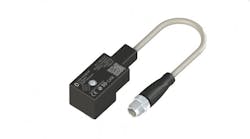At a Glance:
- HFC technology have major benefits, including reliable performance with less downtime. But a strong maintenance strategy remains vital to reduce issues of corrosion in components within any hydraulic system.
- Ronald Knecht explains how a disciplined maintenance regime for Water Glycol (HFC) hydraulic fluids can help keep systems operating more effectively and efficiently—and for longer.
- Four maintenance variables—viscosity, pH, alkaline reserve and particle count—are considered.
Standing at 50-55% market adoption, HFC is a water-based fluid that can be used in all industries where there is a major risk of fire. HFC hydraulic fluids remain the most widely used fire resistant hydraulic fluids today because of their price ratio and their combination of excellent fire-resistant properties with good lubrication performance.
Hydraulic fluids with hydrofluorocarbon or HFC technology have low flammability and can be used in all industries where there is a major risk of fire (presence of a heat source at high temperature), such as high-pressure die casting (HPDC) foundries or steel-making shops. In addition to offering uncompromising fire resistance, other factors for choosing HFC include its OEM endorsements.
However, a strong maintenance strategy is vital to reduce issues of corrosion in components within any hydraulic system—thereby avoiding the potentially significant costs involved in replacing parts and unplanned repair downtime.
Ongoing maintenance requires regular sampling and analysis to protect against costly component damage. A properly maintained HFC operated system can behave very reliably. The impact of neglected maintenance will often result in a period of unplanned downtime, which needs to be meticulously scheduled to minimize the associated inconvenience and revenue losses. However, the long-term cost efficiencies and safety benefits of HFC are beyond question with an effective maintenance plan in place.
The Four Key Maintenance Parameters
1. Viscosity
The viscosity of a water glycol fluid is directly related to the water content. The glycol and PAG (polyalkylene glycol) thickener contained in an HFC fluid are not volatile and will remain in the hydraulic reservoir regardless of fluid temperature. One can therefore expect to see the viscosity of the fluid increase over time as water can evaporate.
The rate of viscosity increase will depend on such factors as ambient temperature, reservoir temperature, airflow across the reservoir breather and the amount of make-up fluid added. A knowledgeable hydraulic fluid supplier can provide their HFC users with a graph that directly relates the viscosity to the water content. A graph eliminates the need to run actual water contents and allows for easy maintenance. Please note that it is important to do any water suppletion gradually.
READ MORE: 2022 IDEA Awards: Fluid Power Components Finalists
Also bear in mind that a falling viscosity can be related to excess water in the water glycol fluid. This excess water can only come from a leaking heat exchanger or over-addition of water in a water adjustment. Should a water alteration ever be necessary, it will need to be made using soft, distilled or deionized water. Divalent metal ions such as calcium and magnesium, which are found in tap and spring water, will cause the lubrication additive to separate from the fluid, resulting in performance issues.
2. pH
In the water-based HFC, the pH of the fluid must be above 8.0 to inhibit rust. Additionally, alkanolamine chemistry must be used to raise the pH; caustic materials such as sodium hydroxide will not inhibit rust. The pH of the fluid in use will drop due to the loss of the vapor phase corrosion inhibitor.
This is to be expected, as the vapor phase corrosion inhibitor is volatile; it must leave the body of the fluid to inhibit rust in the vapor space above the fluid in the reservoir. Quaker Houghton, for example, uses a dual amine additive system that ensures that the pH of the fluid in use will remain above 8.0. A pH of less than 8.0 indicates that the system has been contaminated or diluted.
3. Alkaline Reserve (AR)
AR will drop with use because the vapor phase inhibitor is slowly being removed from the fluid. As indicated, the rate of evaporation will depend on reservoir temperature, ambient temperature and airflow across the reservoir’s breather. An AR of 90 or above is needed to inhibit vapor phase rust in an HFC fluid. Small additions of make-up fluid can have a significant positive impact on the alkaline reserve of a water glycol fluid. Depending on the amine used as the vapor phase corrosion inhibitor, there may never be a need to adjust the AR of fluid in service.
4. Particle Count
To maximize component life, particle counts need to be managed. Pump and valve OEMs have recommended particle counts for fluid depending on pump type, operating pressure and whether or not servo or proportional valves are used. Identifying the critical hardware in your hydraulic system will allow you to set particle count targets for a given piece of equipment. Typically, water glycol fluid will have particle counts in the area of 19/17/14 as determined using the ISO 4406:1999 standard. This applies to fluid supplied in drums and intermediate bulk containers.
Obtaining accurate counts using ISO 4406 requires crystal clear fluid. Hazy fluid will introduce errors in the particle counts. Other methods such as particle re-suspension can provide better results but are not completely accurate. This method is good for trending analysis; however, a review of OEM fluid cleanliness guidelines as well as dialogue with your fluid supplier will help in establishing cleanliness limits for fluid in service.
Quaker Houghton’s expertise can provide clarity and guidance. The company offers the world’s leading brands of fire-resistant hydraulic fluids, including HOUGHTO-SAFE for HFC, which has excellent corrosion inhibition, excellent lubrication and low heat release.
Ronald Knecht is global OEM manager – Hydraulics & Lubricants at Quaker Houghton, Conshohocken, Pa. The company provides technical guidance and support in fire-resistant hydraulic fluids, including HOUGHTO-SAFE for HFC.
This article appeared in Machine Design.

